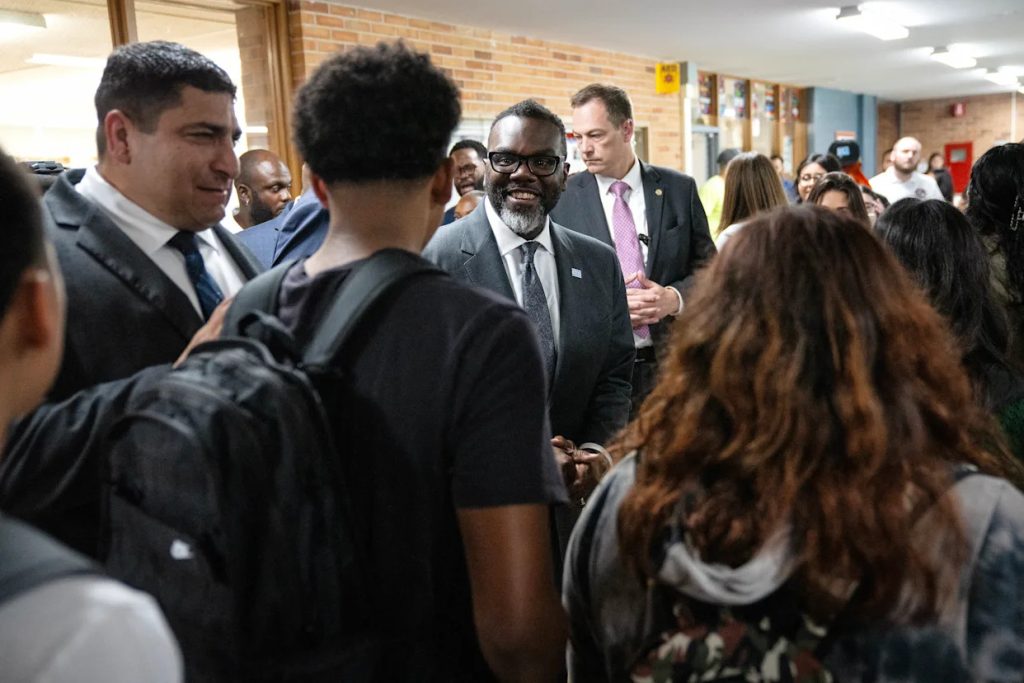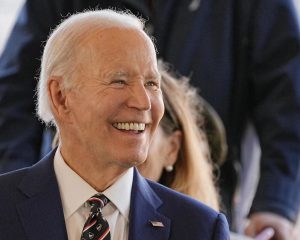Editorial: State control of Chicago Public Schools grows likelier as budget crisis intensifies

Chicagoans with long memories can hear echoes of the past in the growing crisis around finances at Chicago Public Schools.
It was just before Christmas in 1979 when CPS, frozen out of debt markets and with state government unwilling to bail the district out after several such rescues in the 1970s, couldn’t pay its workers. Vendors wouldn’t provide services for fear of going unpaid.
In January 1980, Gov. Jim Thompson hammered out a deal with the city, the Chicago Teachers Union and CPS to have the state essentially take over financial decision-making for Chicago’s public schools. The state was able to borrow on the schools’ behalf and collected new property taxes to finance the debt. The School Finance Authority, created to oversee CPS’ finances, assumed control of CPS budgets and contracting.
It was a monumental decision. The authority, established by the emergency legislation passed that January, didn’t dissolve until 2010 — a full three decades later.
Mayor Richard M. Daley convinced Springfield to hand him authority over the schools in 1995, but the bonds financing CPS through the difficult years of the 1980s didn’t expire until 2010.
We recount this history because once again there now is open discussion of some sort of Springfield takeover of CPS.
State Rep. Curtis Tarver, who represents a South Side district, has proposed legislation to put CPS under the supervision of the existing Illinois Finance Authority. That measure was the focus of a legislative hearing Thursday in Chicago before the Illinois House Executive Committee on CPS’ fraught financial condition.
With former Chicago Teachers Union organizer Brandon Johnson now serving as Chicago mayor, the costs of an already unaffordable school system have only grown, as City Hall has abdicated its duty to represent taxpayers, at least when it comes to Chicago’s massive school system.
At the hearing, CPS representatives, led by interim Superintendent Maquline King, laid out the $734 million budget hole facing her and the Chicago Board of Education. The board must approve a budget for the upcoming school year no later than Aug. 28.
After recently calling for a special session in Springfield to bail out CPS, King recognized that’s not possible before she and the board have to make budget decisions. So it sounds like they’re considering punting.
“Because there is a misalignment between the state, city and district’s fiscal calendars, we can pass an FY 2026 budget with a reasonable assumption of future revenue, with the realization that we will need to make drastic midyear cuts if the revenue does not materialize,” she told lawmakers.
The plan then, such as it is, is to continue to put the onus on the state to bail out a school system where a third of the schools are operating at less than 50% student capacity and where some of the highest-paid public school teachers in the land — taking advantage of a hopelessly compromised mayor — just a few months ago won 4% yearly pay raises over four years as a baseline. For many teachers, the raises will be far higher, with so-called step increases substantially inflating the sum to be charged to taxpayers.
This is also the system that, as Civic Federation President Joe Ferguson noted in his testimony at the hearing, boosted the CPS employee head count by 7,000, or 20%, since 2020, using one-time federal pandemic cash to pay for the hiring binge. Over that same period of time, the CPS student population dropped by 8%, to 325,000 from 355,000.
Name any other enterprise that boosts its staff by 20% while its customer count falls by nearly 10%.
We spoke with Donald Haider, professor emeritus at Northwestern University’s Kellogg School of Management who served as vice chairman of the Chicago School Finance Authority in the 1980s.
“Back in 1980, Mayor (Jane) Byrne had absolutely no choice because all of a sudden CPS was thrown out of capital markets,” he recalled. Now? It would be a stark admission of failure for a former CTU organizer to be the mayor to cede control of CPS to the state, he said.
What seems clearer every day, as CPS careens toward its inevitable day of reckoning, is that the state ultimately will need to be involved in putting the system back on a stable course. That day will only arrive, though, when Johnson and his school board allies, as well as CTU, stop demanding cash from the state with no strings attached and become willing to enter real negotiations about what CPS reform entails.
And, yes, there will need to be reform. A school board and a mayor that jack up teacher salaries and openly talk of taking on more junk-rated debt during a period of deficits well into the hundreds of millions have relinquished their right to determine CPS’ future. There assuredly will be painful conditions attached to whatever assistance the state provides — if indeed a cash-strapped Springfield even summons the will and the means to help. A meaningful, enforceable school consolidation plan, perhaps? Limits on contracting authority maybe, including future negotiations with CTU?
The bottom line: If you can’t manage your own business, you’re in no position to complain when others force concessions from you in return for fixing what you’ve broken.
When the time comes for true hardheaded negotiations — and we believe that time is coming soon — a new or existing state oversight mechanism may well once again hold the purse strings for the nation’s fourth-largest public school system. The reality of limited dollars is something every household or business must face. CTU and Mayor Johnson aren’t any different.
Submit a letter, of no more than 400 words, to the editor here or email letters@chicagotribune.com.


